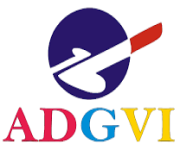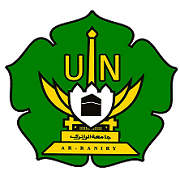Implementasi Metode Diskusi Terhadap Peningkatan Hasil Belajar Siswa
Abstract
Keywords
Full Text:
PDFReferences
Syaifu, Bahri, Djamarah, Aswan Zain. Strategi Belajar Mengajar. Jakarta: Rineka Cipta. 2006
Armai, Arif. Pengantar Ilmu dan Metodologi Pendidikan Islam. Jakarta: Ciputat Pers. 2002
Erwati, Aziz. Prinsip-Prinsip Pendidikan Islam. Solo: Tiga Serangkai. 2003
Abdul, Majid. Perencanaan Pembelajaran. Bandung: Remaja Rosdakarya. 2007
Oemar, Hamalik. Pengajaran Unit Pendekatan Sistem. Bandung: Mandar Maju. 2005
Hery, Clay, Lindgren. Educational Psychology The Classroom. Modern Asian Edition. 1960
Amirul, Hadi. Teknik Mengajar Secara Sistematis. Jakarta: Rineka Cipta. 2001
Kamdhi, J. S. Diskusi yang Efektif. Yogyakarta: Kanisius. 1995
Suryabrata. Proses Belajar Mengajar di Sekolah. Jakarta: Rineka Cipta. 1997
Zakiah, Daradjat. Metodik Khusus Pengajaran Agama Islam. Jakarta: Bumi Aksara. 2014
DEPDIKNAS, Pusat Bahasa. Kamus Besar Bahasa Indonesia. Edisi Ketiga Jakarta: Balai Pustaka. 2005
Anwar, Kasful & Hendra, Harmi. Perencanaan Sistem Pembelajaran KTSP. Bandung: Alfabeta. 2011
Nana, Sudjana. Dasar-Dasar Proses Belajar. Bandung: Sinar Baru. 2010
Trianto. Mendesain Model-Model Pembelajaran Inovatif-Progresif. Jakarta: Kencana. 2010
Ngalim, Purwanto. Evaluasi Hasil Belajar. Yogyakarta: Pustaka Pelajar. 2011
Slameto. Belajar dan Faktor-Faktor yang Mempengaruhinya. Jakarta: Rineka Cipta. 2010
Abudin, Nata. Perspektif Islam Tentang Strategi Pembelajaran. Jakarta: Kencana. 2011
DOI: http://dx.doi.org/10.22373/crc.v1i1.1384
Refbacks
- There are currently no refbacks.
Copyright (c) 2017 CIRCUIT: Jurnal Ilmiah Pendidikan Teknik Elektro
Circuit: Jurnal Ilmiah Pendidikan Teknik Elektro
P-ISSN 2549-3698
E-ISSN 2549-3701
Published by Electrical and Engineering Education Department, Education and Teacher Training Faculty, Universitas Islam Negeri Ar-Raniry Banda Aceh, Indonesia
Email: [email protected]

Creative Commons License
Circuit: Jurnal Ilmiah Pendidikan Teknik Elektro is licensed under a Creative Commons Attribution-ShareAlike 4.0 International License.
























